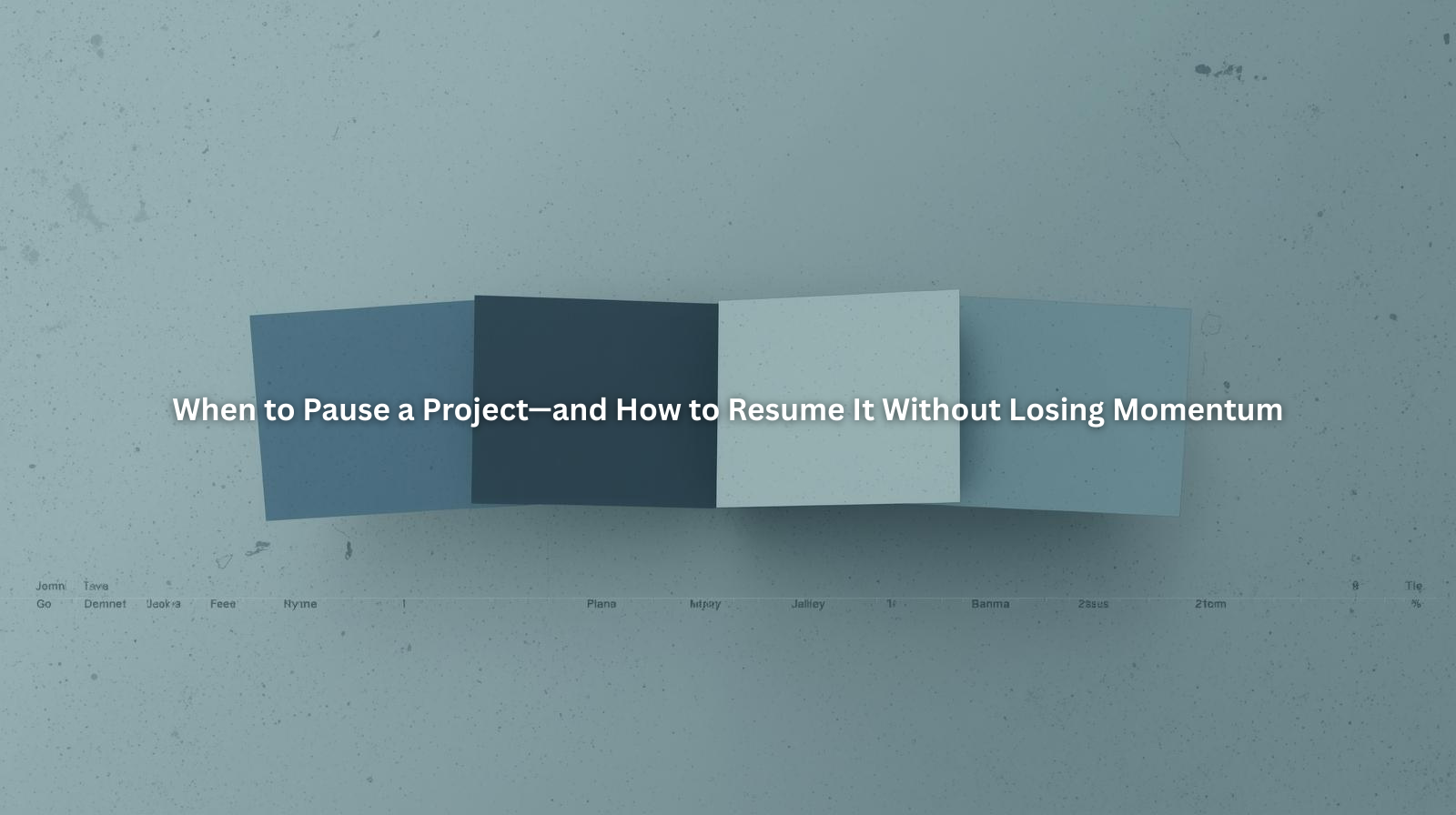Setting Freelance Rates: How to Price Your Services Competitively

Table of Contents
- Why Pricing Feels So Hard for Freelancers
- The 3 Most Common Pricing Models (And When to Use Them)
- Factors That Influence What You Should Charge
- How to Set a Rate That’s Competitive and Sustainable
- When (and How) to Raise Your Rates
- How ProjectBook.co Helps You Price Smarter
- Frequently Asked Questions (FAQ)
Why Pricing Feels So Hard for Freelancers
If you’ve ever asked yourself:
“Am I charging too much?”
“Am I charging enough?”
“Why does pricing feel so emotional?”
You’re not alone.
Setting freelance rates is one of the hardest parts of running a solo business. Why? Because it’s not just about math—it’s about confidence, value, and clarity.
When your pricing is unclear or inconsistent, it leads to:
- Over-delivery and underpayment
- Client confusion or sticker shock
- Scope creep without compensation
- Burnout
But when your pricing is rooted in real data and value? You build a sustainable business that supports you and your clients.

The 3 Most Common Pricing Models (And When to Use Them)
There’s no one-size-fits-all pricing model, but most freelancers use one (or a combo) of the following:
1. Hourly Pricing
Best for: Short-term, undefined scope work; consulting; ongoing support
✅ Easy to track
✅ Flexible for evolving work
❌ Hard to scale
❌ Clients may resist if hours pile up
💡 Tip: If you use hourly, track time clearly—and cap hours in your contract.
2. Project-Based Pricing
Best for: Deliverable-based work (design, websites, copywriting, etc.)
✅ Clear upfront cost for clients
✅ Easier to scope and sell
❌ Risk of scope creep
❌ Requires experience to estimate accurately
💡 Tip: Define project phases and include a change-order process.
3. Value-Based Pricing
Best for: High-impact work tied to ROI (branding, marketing, consulting)
✅ Allows you to charge based on outcome
✅ Clients are focused on results, not deliverables
❌ Requires trust and positioning
❌ Not ideal for beginners
💡 Tip: Ask clients about their goals before quoting—then frame your price based on impact.
Factors That Influence What You Should Charge
Before setting your rate, ask:
- What’s included? Scope, number of revisions, level of support
- How long will this take me? (And add buffer time!)
- What’s the value to the client? Revenue, clarity, reach
- What are my expenses? Software, admin time, taxes, health insurance
- What do others in my industry charge? Research peers—not just averages
Most importantly: What do I need to earn to live well and sustainably?
Your rate should support your business and your life.
How to Set a Rate That’s Competitive and Sustainable
Here’s a simple framework:
1. Start with your financial goal
Example: You want to earn $80,000/year
→ Divide by working weeks (~48): $1,667/week
→ Divide by average hours (20 billable hrs/week): $83/hour baseline
Now layer on:
- Value of the service
- Market rates
- Your experience
Your final rate might be $100/hr or $2,500/project—not because you pulled it from the sky, but because it aligns with your numbers and your worth.
2. Validate with project history
Look at past projects:
- How long did they take?
- Was your rate profitable after revisions and admin time?
- What parts took more time than you expected?
💡 Use ProjectBook.co to review past projects, timeframes, and deliverables to price future work more accurately.

3. Communicate with confidence
Clients respond to energy. If you say:
“My project rate is $2,000 and includes X, Y, and Z with one revision round.”
They’re more likely to trust your pricing than if you say:
“I usually charge around $2,000 but it’s flexible…”
When (and How) to Raise Your Rates
If you’re:
- Consistently booked out
- Getting high praise from clients
- Doing deeper or more strategic work
- Feeling underpaid or overworked
It’s time to raise your rates.
Raise them by:
- 10–20% every 6–12 months
- Or with every new client booked
- Or after a major project success or new skill added
Communicate it clearly:
“Thanks so much for reaching out! Just a heads-up—my 2024 rates are now [new rate]. Let me know if you’d like a custom proposal.”
How ProjectBook.co Helps You Price Smarter
Pricing isn’t just about numbers. It’s about project clarity. If you don’t have a good system for tracking what you deliver, it’s hard to charge fairly.
That’s where ProjectBook.co helps:
✅ Organize past projects to see how long things really took
✅ Track deliverables, feedback loops, and revision rounds
✅ Store scope of work and pricing details by client
✅ Create templates so new quotes don’t start from scratch
✅ Spot patterns that help you price future work more confidently
Whether you’re refining your hourly rate or building out a package, ProjectBook.co gives you the visibility to price with purpose.

Frequently Asked Questions (FAQ)
How do I know if my rates are too low?
If you feel resentful, rushed, or stretched thin—your rates are too low. Also: If you consistently book clients without hesitation, it may be time to raise them.
Should I post my prices on my website?
It depends. Posting ranges or package tiers can help qualify leads. For custom work, a discovery call may be better.
How do I avoid scope creep when pricing projects?
Include a clear scope of work, revision policy, and change-order clause in your proposal. Then manage the project through a tool like ProjectBook.co that tracks what’s in and out of scope.
Is charging hourly bad?
Not at all—it’s just less scalable. Hourly can work well for support retainers or undefined scope work. But project or value-based pricing is often more profitable.
How can I feel more confident quoting higher rates?
Start by getting clear on the value you bring and tracking your work. The more data and structure you have, the more confidently you’ll stand behind your numbers.
Final Thoughts: Your Pricing Is a Business Decision—Not a Guess
Freelance pricing doesn’t have to feel like a shot in the dark.
When you base your rates on real numbers, clear scopes, and smart workflows, you protect your energy—and position your business to grow.
Ready to track your projects and build pricing confidence?
Try ProjectBook.co today and manage your freelance business with clarity, structure, and pricing that works for you.


